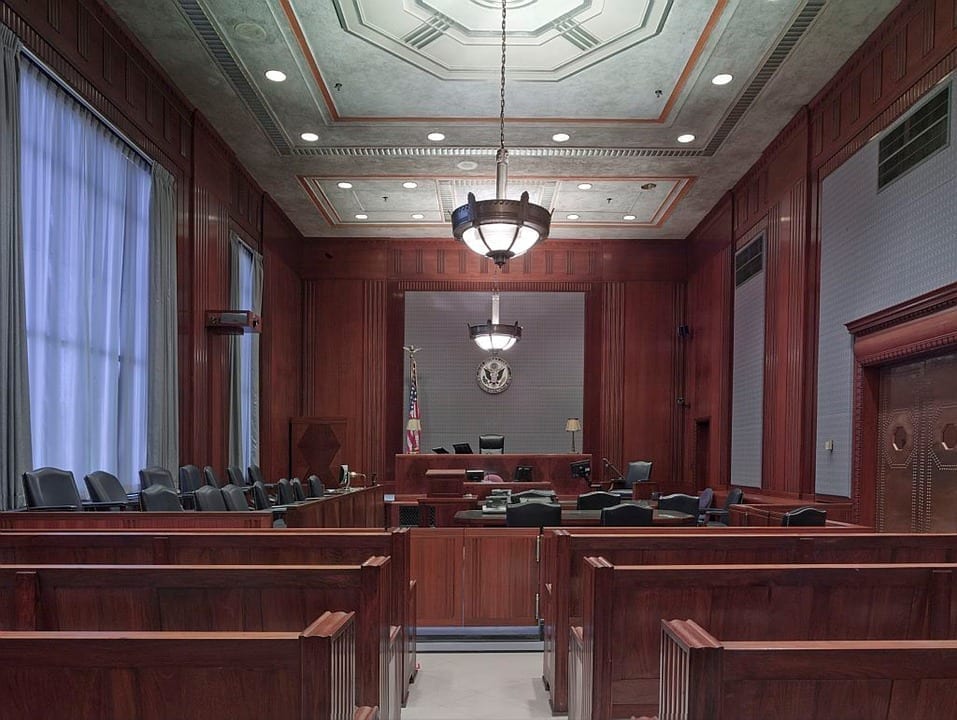Even in cases when the grand jury does not indict, the prosecutor can take the defendant to trial if they believe the case is strong enough.
When it comes to a criminal process, the grand jury is very important. It is a key part of the whole process. But a grand jury works differently from a regular jury – they don’t have to find whether a party is guilty or punish it. Working in a grand jury puts a lot of responsibility on someone’s shoulders, especially considering they can help bring an indictment against the defendant, who may be working with a grand jury indictment attorney.
A grand jury is not required all the time, but when one is necessary, it can help the case in various ways. If you are about to participate in a case, you should know what a grand jury is and what you should expect from them. This post will help clarify some things about grand jury proceedings and tell you how a grand jury works.
What Exactly is a Grand Jury?
A grand jury is a key part of a criminal case, as it has two roles: to protect citizens from unfounded criminal prosecutions and also to investigate. When it comes to charging someone with a crime, the grand jury will be the one determining if there is enough evidence to prove that a crime has been committed.
Also, they will determine whether the evidence that exists is enough to charge someone with that crime, whether it’s an individual or an organization. Guilt or innocence is not determined by the grand jury, though.
When it comes to investigations, the grand jury may subpoena witnesses and documents. A grand jury may be asked by a prosecutor to issue subpoenas for various documents or to convince someone to appear to testify under oath. However, just because subpoenas are issued by a grand jury, it doesn’t instantly mean that there will be any criminal charges brought.
The role of the grand jury is a very important one, but at the same time, they will not be the ones finding a party guilty or giving them punishment. Prosecutors are the ones working with grand juries with the goal of either bringing criminal charges or an indictment against a possible defendant.
In general, a regular court trial jury is made of 6 or 12 people, while in the federal system, grand juries consist of 16 to 23 people. Although a grand jury may be called to do their job for several months, they only need to be in court a few days monthly.
What Makes a Grand Jury Different?
Grand juries are different from preliminary hearings in several ways. For instance, many states do not use their law provisions for grand juries. All states have these provisions in their laws, but about half of the states decided to not make use of them.
Instead, courts tend to use preliminary hearings before criminal trials. These are adversarial. The focus of a preliminary hearing is to figure out if there is probable cause or enough evidence to indict a possible criminal.
Also, preliminary hearings are open to the public and there is a judge and lawyers on each side. This is not the case with a grand jury, though. Grand juries only have the prosecutor and the jurors, and the only people who can be present include the witness who is under examination, the stenographers, the interpreters, and the attorneys from the government. It all takes place in a closed meeting room, which usually looks very similar to a classroom.
There are some cases when a preliminary hearing happens before a grand jury. There is also another difference between the two, more specifically the fact that the defendant may request a preliminary hearing. The court has the option to decline this request, though.
What Happens During Grand Jury Proceedings
Generally, grand juries are not as intense as your typical courtroom proceedings. They tend to be more relaxed, mainly because no judge is present. Sometimes, there are no lawyers there either, apart from a prosecutor.
As the proceedings begin, the prosecutor will start giving the jury explanations about the law, and then work together to hear testimony and gather some evidence. According to the normal evidence rules in the courtroom, exhibits and other testimony have to follow strict rules before being admitted. However, the grand jury will be able to hear whatever they like.
But as mentioned earlier, grand jury proceedings are quite relaxed, and they also happen in full confidence. The purpose of this smooth and confident process is to encourage witnesses to speak without being afraid of retaliation – this way, they can speak freely, mentioning every important detail. Also, it helps protect the reputation of the possible defendant if the jury decides to not indict.
To indict, a grand jury does not require all members to agree. However, a majority of ¾ or 2/3 agreement is required for the indictment. Everything may depend on the jurisdiction, though.
Also, even in cases when the grand jury does not indict, the prosecutor can take the defendant to trial if they believe the case is strong enough. Usually, though, grand jury proceedings are enough for prosecutors to make a decision.
When a grand jury decides to indict, the chances are that a trial will start sooner. Otherwise, if there is no indictment from the grand jury, the prosecutor has a lot of work to do to prove to the trial judge that enough evidence exists and that the case can continue. Grand jury indictment can save time as the prosecutor can directly go to trial and skip that time-consuming step.
Final Thoughts
If you think you are possibly going to face a grand jury, then you need to know what the process involves. You may be overwhelmed by everything, so if you want to learn more about the whole procedure in your area, you should contact a grand jury indictment attorney. This way, you will gain more knowledge and confidence before the grand jury proceedings begin.
But a grand jury works differently from a regular jury – they don’t have to find whether a party is guilty or punish it. Working in a grand jury puts a lot of responsibility on someone’s shoulders, especially considering they can help bring an indictment against the defendant, who may be working with a grand jury indictment attorney.
A grand jury is not required all the time, but when one is necessary, it can help the case in various ways. If you are about to participate in a case, you should know what a grand jury is and what you should expect from them. This post will help clarify some things about grand jury proceedings and tell you how a grand jury works.
What Exactly is a Grand Jury?
A grand jury is a key part of a criminal case, as it has two roles: to protect citizens from unfounded criminal prosecutions and also to investigate. When it comes to charging someone with a crime, the grand jury will be the one determining if there is enough evidence to prove that a crime has been committed.
Also, they will determine whether the evidence that exists is enough to charge someone with that crime, whether it’s an individual or an organization. Guilt or innocence is not determined by the grand jury, though.
When it comes to investigations, the grand jury may subpoena witnesses and documents. A grand jury may be asked by a prosecutor to issue subpoenas for various documents or to convince someone to appear to testify under oath. However, just because subpoenas are issued by a grand jury, it doesn’t instantly mean that there will be any criminal charges brought.
The role of the grand jury is a very important one, but at the same time, they will not be the ones finding a party guilty or giving them punishment. Prosecutors are the ones working with grand juries with the goal of either bringing criminal charges or an indictment against a possible defendant.
In general, a regular court trial jury is made of 6 or 12 people, while in the federal system, grand juries consist of 16 to 23 people. Although a grand jury may be called to do their job for several months, they only need to be in court a few days monthly.
What Makes a Grand Jury Different?
Grand juries are different from preliminary hearings in several ways. For instance, many states do not use their law provisions for grand juries. All states have these provisions in their laws, but about half of the states decided to not make use of them.
Instead, courts tend to use preliminary hearings before criminal trials. These are adversarial. The focus of a preliminary hearing is to figure out if there is probable cause or enough evidence to indict a possible criminal.
Also, preliminary hearings are open to the public and there is a judge and lawyers on each side. This is not the case with a grand jury, though. Grand juries only have the prosecutor and the jurors, and the only people who can be present include the witness who is under examination, the stenographers, the interpreters, and the attorneys from the government. It all takes place in a closed meeting room, which usually looks very similar to a classroom.

There are some cases when a preliminary hearing happens before a grand jury. There is also another difference between the two, more specifically the fact that the defendant may request a preliminary hearing. The court has the option to decline this request, though.
What Happens During Grand Jury Proceedings
Generally, grand juries are not as intense as your typical courtroom proceedings. They tend to be more relaxed, mainly because no judge is present. Sometimes, there are no lawyers there either, apart from a prosecutor.
As the proceedings begin, the prosecutor will start giving the jury explanations about the law, and then work together to hear testimony and gather some evidence. According to the normal evidence rules in the courtroom, exhibits and other testimony have to follow strict rules before being admitted. However, the grand jury will be able to hear whatever they like.
But as mentioned earlier, grand jury proceedings are quite relaxed, and they also happen in full confidence. The purpose of this smooth and confident process is to encourage witnesses to speak without being afraid of retaliation – this way, they can speak freely, mentioning every important detail. Also, it helps protect the reputation of the possible defendant if the jury decides to not indict.
To indict, a grand jury does not require all members to agree. However, a majority of ¾ or 2/3 agreement is required for the indictment. Everything may depend on the jurisdiction, though.
Also, even in cases when the grand jury does not indict, the prosecutor can take the defendant to trial if they believe the case is strong enough. Usually, though, grand jury proceedings are enough for prosecutors to make a decision.
When a grand jury decides to indict, the chances are that a trial will start sooner. Otherwise, if there is no indictment from the grand jury, the prosecutor has a lot of work to do to prove to the trial judge that enough evidence exists and that the case can continue. Grand jury indictment can save time as the prosecutor can directly go to trial and skip that time-consuming step.
Final Thoughts
If you think you are possibly going to face a grand jury, then you need to know what the process involves. You may be overwhelmed by everything, so if you want to learn more about the whole procedure in your area, you should contact a grand jury indictment attorney. This way, you will gain more knowledge and confidence before the grand jury proceedings begin.


Join the conversation!